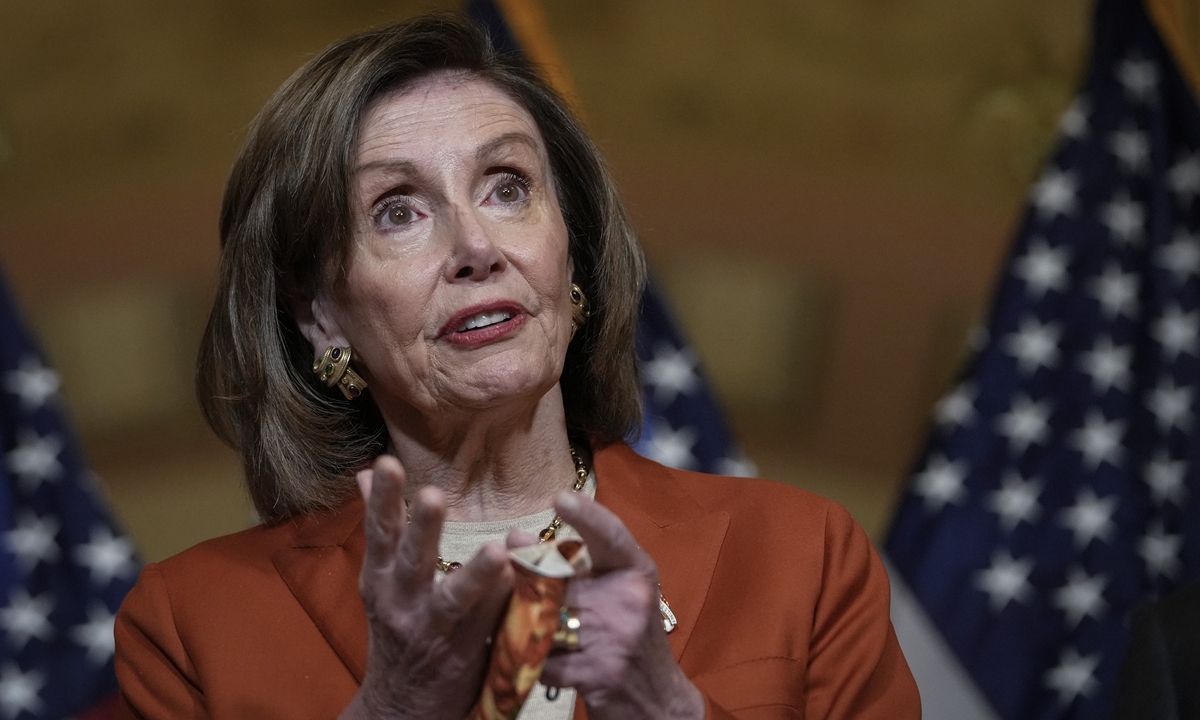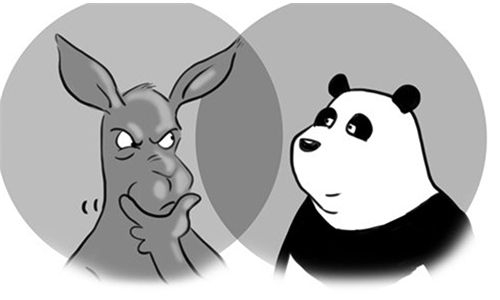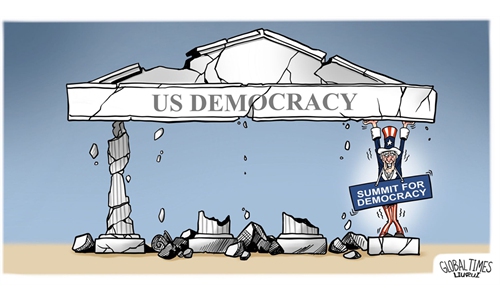
Nancy Pelosi Photo: AFP
Although the 2022 midterm elections are about to come in a year, being hard-line toward China is becoming a white-hot trend between the Republicans and Democrats.Critics, especially Republicans, pointed out that US House Speaker Nancy Pelosi was quick to cozy up to China in the past when it was politically convenient and is doing so again, according to a report by Fox Business on Friday. The reported cited Pelosi's defensive attitude when asked by Fox Business about why the House has not voted on the so-called Uygur forced labor prevention act - "For over 30 years, I have been considered the most disliked - they use stronger language than that… in China."
Pelosi, serving as an anti-China vanguard, has constantly pointed fingers at China on a groundless basis. In June 2019, she even "praised" the Hong Kong riots as "a beautiful sight to behold," which heavily annoyed the Chinese public. Such a figure being labeled as "cozying up to China" fully demonstrates how fierce the competition is in the anti-China campaign between Republicans and Democrats. As long as the subject is China, whatever the issue, the two parties will compete to be tougher.
"This is a very distorted game, which embodies the extremely deteriorated political environment of the US," Zhang Tengjun, deputy director of the Department for Asia-Pacific Studies at the China Institute of International Studies, told the Global Times. "Against this backdrop, how can the US introduce any rational policy toward China? This is the sad part of American politics at the moment."
Some polls carried out by US institutions found China is becoming unpopular in the eyes of Americans. For example, according to a survey conducted by the Ronald Reagan Presidential Foundation and Institute between October 15 and November 7, Americans listed China as the US' top threat. This is largely because politicians had been repeatedly exaggerating the so-called China threat, hyping false news about China and constantly demonizing China, which directly results in the current anti-China atmosphere as a whole. As a result, no efficient way to improve China-US relations is in sight now. US politicians should assume a large part of the responsibility.
At the moment, every candidate is sparing no effort to gain more votes for the 2022 midterm elections. As they understand it, hyping China-related topics could bring huge interests to them as the subject does not only involve diplomacy, but also the US public, especially the benefits of the middle class. In this context, hyping China-related subjects can help them win public support.
"It is anticipated we'll see a peak of more intense anti-China words and deeds, as seen in the 2020 presidential election," Zhang said.
However, this constricts the improvement in bilateral relations between China and the US. With these anti-China forces, even if President Joe Biden intends to improve bilateral ties, it would be hampered by domestic politics.
Furthermore, such a political atmosphere has impaired the long-term foundations of China-US relations. Mutual perception and trust between China and the US have sharply deteriorated in recent years as the US has amplified its negative propaganda against China. There is now a big gap in mutual understanding. If this situation is prolonged, there will be no sign of positive bilateral ties.
The hard-line approach by the incumbent US administration is to counter China by establishing an ideological bloc, the so-called democratic alliance. This is likely to lead the world into a new cold war, which is very risky. A new cold war between China and the US will tear the world apart because it would force other countries to take sides.


